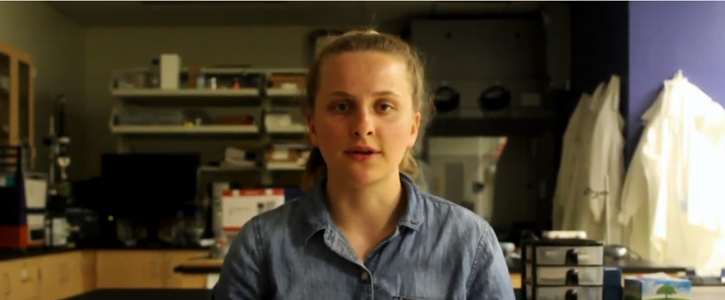Western New England University (WNE) College of Engineering students have been awarded honorable mention at the 2021 Design by Biomedical Undergraduate Teams (DEBUT) Challenge, hosted by the National Institute of Biomedical Imaging and Bioengineering (NIBIB).
Joining student award recipients from universities nationwide — including Johns Hopkins, Stanford, Harvard, and Duke—WNE students Allison Lukas, Anna Cichon, and Sara Cunha, under the supervision of faculty advisor Assistant Professor Devina Jaiswal, presented their project CLOC-300: Coagulation Lab-on-Chip Device. The device is a low-cost point-of-care blood clotting time (BCT) analyzer that can be easily distributed to healthcare systems in developing countries with high mortality rates as a result of minimal resources, funding, and trained personnel, to observe patients during surgery, monitor patients using blood thinners, or implemented as an early screening technique for cardiac issues and preeclampsia.
The device, independent of the user interface for reliable and consistent readouts, utilizes a microfluidic lab-on-chip device (CLOC-300) developed with an interdigitated passive pump, allowing patient blood samples to clot in the microchannel and readout BCT within five to ten minutes. Material validation tests were performed and various design criteria were evaluated and tested to optimize critical parameters such as sample flow rate and the time the fluid remains on the chip before it clots. Relative flow rate data showed initiation of blood clotting within five minutes as blood circulated in the channel. The finalized chip was vacuum sealed to increase its shelf-life and ease of shipping.
A patent search, investigation into the FDA approval process, and market analysis was conducted to confirm the success of this device. In the future, the chip will be made compatible with a handheld device application that will process BCT through imaging software and give direct readout of the results to medical professionals and patients.
DEBUT was launched in October 2020, with submissions accepted from January to June 2021. Award winners were announced on August 25, 2021 and will be recognized at an awards ceremony in October at the Biomedical Engineering Society Conference. View the full WNE presentation on YouTube.
The NIBIB DEBUT Challenge solicited design projects that develop innovative solutions to unmet health and clinical problems. Areas of interest for the biomedical engineering projects include, but are not limited to: diagnostics, therapeutics, technologies for underserved populations or low-resource settings, point-of-care systems, precision medicine, preventive medicine, technologies to aid individuals with disabilities, and HIV/AIDS prevention and care. In addition to prizes where there is no restriction on the healthcare technology being developed, three categorical prizes were awarded on: 1) HIV/AIDS prevention and care, 2) healthcare technologies for underrepresented populations and/or for low-resource settings, and 3) technologies for cancer prevention, diagnosis or treatment, with funds from the NIH Office of AIDS Research (OAR), the National Institute on Minority Health and Health Disparities (NIMHD), and National Cancer Institute (NCI), respectively.





